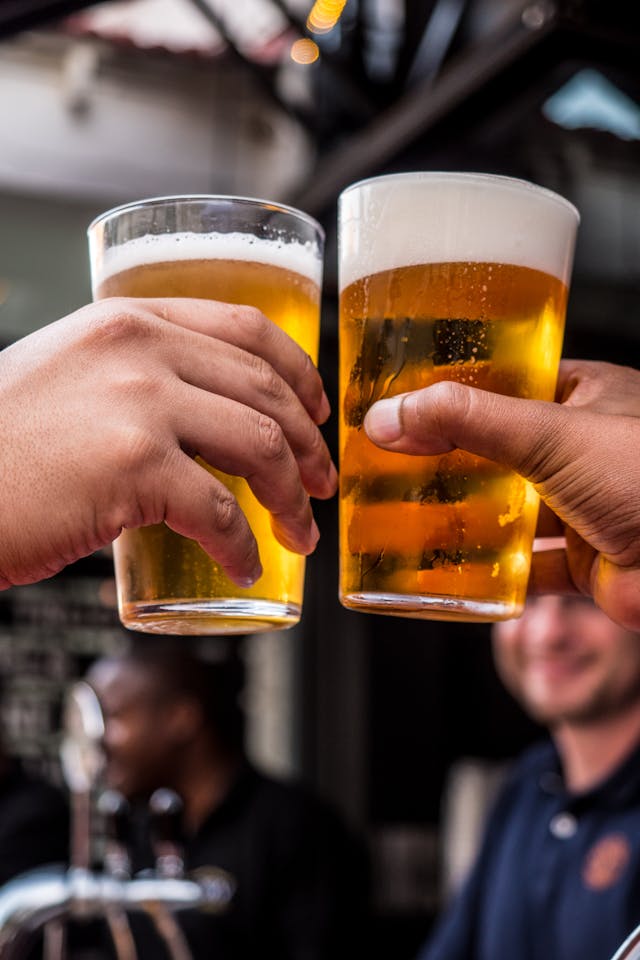
Why Drinking Alcohol Makes It Nearly Impossible to Make Progress in Fitness
When it comes to fitness, we’re often told to focus on exercise routines, nutrition plans, and recovery strategies. But there’s one element that can quietly sabotage all your hard work: alcohol. While it might seem harmless to enjoy a drink after a workout or indulge on weekends, alcohol has a profound impact on your body’s ability to achieve fitness goals. Let’s break down why drinking alcohol makes progress in fitness nearly impossible.
1. Alcohol Disrupts Muscle Recovery
After a tough workout, your body relies on proper nutrition. And rest to repair muscle fibers and grow stronger. Alcohol disrupts this process in several ways:
- Inhibits Protein Synthesis: Protein synthesis is essential for muscle repair and growth. But alcohol significantly reduces your body’s ability to carry out this process. This can hinder muscle recovery and limit strength gains.
- Increases Inflammation: Alcohol consumption promotes inflammation. Which can delay recovery and increase muscle soreness, making it harder to get back to your next workout.
2. Negative Impact on Hormones
Hormones play a critical role in fitness, from building muscle to burning fat. Alcohol consumption interferes with hormone production and balance:
- Reduces Testosterone Levels: Testosterone is a key hormone for muscle growth and fat loss. But alcohol can lower its levels, especially with regular drinking.
- Increases Cortisol Levels: Alcohol elevates cortisol, the stress hormone, which promotes fat storage and muscle breakdown.
3. Empty Calories and Weight Gain
Alcohol is calorie-dense but provides no nutritional value. For example, one gram of alcohol contains 7 calories, compared to 4 calories per gram for protein and carbs. These empty calories can quickly add up and derail your calorie goals:
- Promotes Fat Storage: Your body prioritises metabolizing alcohol over other nutrients, meaning fat and carbohydrates consumed alongside alcohol are more likely to be stored as fat.
- Stimulates Appetite: Alcohol lowers inhibitions and can stimulate appetite, leading to overeating or poor food choices.
4. Dehydration and Reduced Performance
Hydration is vital for optimal workout performance, but alcohol dehydrates your body:
- Diuretic Effect: Alcohol increases urine output, leading to dehydration and electrolyte imbalances.
- Impairs Muscle Function: Dehydration can reduce muscle strength, endurance, and coordination, making your workouts less effective.
5. Poor Sleep Quality
Sleep is when your body does the majority of its recovery and repair work. Alcohol, however, disrupts sleep patterns:
- Reduces REM Sleep: REM sleep is crucial for physical and mental recovery, but alcohol consumption decreases the amount of time spent in this stage.
- Leads to Restless Sleep: Even if you fall asleep quickly after drinking, the quality of your sleep is significantly lower, leaving you tired and less motivated for your workouts.
6. Decreased Motivation and Energy Levels
The day after drinking, many people experience fatigue, lethargy, or even a hangover. These symptoms can:
- Lower Workout Intensity: You’re less likely to push yourself during exercise when you’re feeling sluggish.
- Increase Missed Workouts: A night of heavy drinking can lead to skipping workouts entirely, disrupting your routine and progress.
Can You Drink and Still Make Progress?
While eliminating alcohol completely is the best way to maximize fitness results, occasional moderate drinking doesn’t have to derail your progress entirely. Here’s how to minimise its impact:
- Set Limits: Stick to one or two drinks on special occasions, and avoid binge drinking.
- Choose Lower-Calorie Options: Opt for light beer, wine, or spirits mixed with calorie-free beverages.
- Hydrate: Drink plenty of water before, during, and after consuming alcohol to mitigate dehydration.
- Avoid Drinking After Workouts: Allow your body time to recover before introducing alcohol, as this is when muscle repair and nutrient absorption are most critical.
Final Thoughts
Alcohol might seem like a minor indulgence, but its impact on your fitness journey is anything but small. From disrupting recovery and hormonal balance to promoting fat storage and impairing performance. Drinking can make it nearly impossible to achieve your fitness goals. If you’re serious about making progress, it’s worth reconsidering your relationship with alcohol. Or at least adopting strategies to minimise its effects. Remember, every choice counts on the path to a healthier, stronger you.



